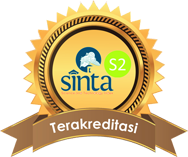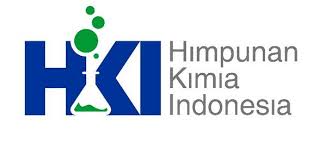Improving Students Science Process and Critical Thinking Skills Using Semi-Research Patterns Practicum
DOI:
https://doi.org/10.15575/jtk.v6i1.12495Keywords:
critical thinking skills, semi-research pattern practicum, science process skillsAbstract
The old pattern of practicum implementation has less impact on increasing students’ science process skills and critical thinking. Therefore, implementing practicum with a semi-research pattern has been carried out by involving the lecturer and laboratory assistant. The subjects of this research were 40 students in Universitas Negeri Medan. The method is classroom action research consisting of two cycles. Each cycle includes planning, action, reflection, and evaluation. Instrument’s research is the observation sheet and essay test. The results of descriptive data analysis show that implementing practicum with a semi-research pattern can improve students’ science process critical thinking skills, especially in planning experiments by 88.3% and critical thinking skills in evaluating by 82.3%. Â
References
Akinbobola, A. O., & Afolabi, B. (2010). Analysis of science process skills in west African senior secondary school certificate physics practical examination in Nigeria. American-Eurasian Journal of Scientific Research, 5(4), 234-240. Retrieved from http://www.idosi.org/aejsr/5(4)10/3.pdf
Altun, E., Demirdag, B., Burak, F., Alev, A., & Iker, C. (2009). Developing an interactive virtual chemistry laboratory enriched with constructivist learning activities for secondary school. Procedia Social and Behavior Science, 1(1), 1895-1898. https://doi.org/10.1016/j.sbspro.2009.01.333
Bruck, L. B., & Towns, M. H. (2009). Preparing students to benefit from inquiry-based activities in the chemistry laboratory: guidelines and suggestions. Journal of Chemical Education, 86(7), 820. https://doi.org/10.1021/ed086p820
Hamidu, M. Y., Ibrahim, A. I., & Muhammed A. (2014). The use of laboratory method in teaching secondary school students: a key improving the quality of education. International Journal of Scientific & Engineering Research, 5(9), 81-86. Retrieved from https://citeseerx.ist.psu.edu/viewdoc/citations?doi=10.1.1.685.806
Jahro, I. S., Darmana, A., & Sutiani, A. (2017). Analisis dampak pelaksanaan praktikum terhadap penguasaan pengetahuan, keterampilan proses sains dan kemampuan berpikir kritis mahasiswa. Medan: Jurusan Kimia, FMIPA Unimed.
Istarani. (2012). 58 Model pembelajaran inovatif. Medan: Media Persada.
Liliasari (2009, September). Berpikir kritis dalam pembelajaran sains kimia. Paper presented at Workshop KBK, Medan: Universitas Negeri Medan.
Mulyasa, E. (2006). Menjadi guru professional menciptakan pembelajaran kreatif dan menyenangkan. Bandung: PT. Remaja Rosdakarya.
Noor, F. M., & Wilujeng, I. (2015). Pengembangan LKS berbasis pendekatan CTL untuk meningkatkan keterampilan proses sains dan motivasi belajar. Jurnal Inovasi Pendidikan IPA, 1(1), 73-75. https://doi.org/10.21831/jipi.v1i1.4534
Rezba, R. J., Sprague, C., McDonnough, J. T., & Matkin, J. J. (2007). Learning and assessing science process skill. Iowa: Hunt Publishing Company.
Suyanti, R.D. (2010). Strategi pembelajaran kimia. Yogyakarta: Graha Ilmu.
Tim Kurikulum. (2013). Buku pedoman akademik. Medan: FMIPA Unimed.
Trianto (2010). Model pembelajaran terpadu. Jakarta: Bumi Aksara.
Downloads
Published
How to Cite
Issue
Section
Citation Check
License
Authors who publish with this journal agree to the following terms:
- Authors retain copyright and grant the journal right of first publication with the work simultaneously licensed under a Creative Commons Attribution-ShareAlike that allows others to share the work with an acknowledgement of the work's authorship and initial publication in this journal.
- Authors are able to enter into separate, additional contractual arrangements for the non-exclusive distribution of the journal's published version of the work (e.g., post it to an institutional repository or publish it in a book), with an acknowledgement of its initial publication in this journal.
- Authors are permitted and encouraged to post their work online (e.g., in institutional repositories or on their website) prior to and during the submission process, as it can lead to productive exchanges, as well as earlier and greater citation of published work (See The Effect of Open Access).









